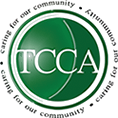Turkish Cypriot Folk Dance Project
Folk Dance sessions for young people have been running at the TCCA were first introduced to TCCA in March 2019. These sessions are held on Mondays from 17.00-18.30, which are divided into the following age groups 5-8 years and 9-12 years.
The aims of the sessions are to teach young people about their Turkish Cypriot Culture and Heritage and give them an opportunity to take part in a healthy after school activity, as well as developing many other key skills.
All sessions begin with a warmup and then a recap of the dances and moves learned from the previous week. The session then continues were the kids learn new dance moves. Each dance is explained in both English and Turkish. Although it is a dance session, speaking in both languages can also be beneficial to young Turkish Cypriots to expand on their language skills also.


